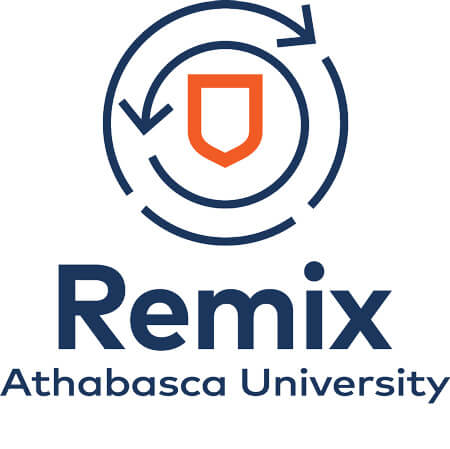Athabasca University Press launches new publishing program for open educational resources
Remix publishes open access resources by AU academics
Athabasca University Press has launched a new publishing program that expands on the university’s commitment to open access.
Remix publishes open educational resources (OER) written or adapted by Athabasca University (AU) faculty for use in the university’s courses. The new imprint is part of the university’s learning resource strategy.
 “As an open university, Athabasca University’s mission is to remove barriers to higher education. Remix enhances that commitment by making learning resources more affordable and convenient for students,” said Kathy Killoh, interim director of AU Press.
“As an open university, Athabasca University’s mission is to remove barriers to higher education. Remix enhances that commitment by making learning resources more affordable and convenient for students,” said Kathy Killoh, interim director of AU Press.
Remix benefits from the publishing expertise of AU Press, which was founded in 2007.
Titles are published under a Creative Commons licence and will be freely available from AU Press’s website and through OER repositories.
Remix publications differ from traditional university press titles as they do not go through standard peer review.
“Remix builds on AU’s commitment to excellence, open access, and knowledge dissemination, and showcases AU Press’s innovative approaches to digital publishing,” Killoh said.
Remix launches with an initial three open-access titles by AU academics:
- Read, Think, Write: Writing in University by academic coordinator Adien Dubbelboer and tutor Pam Chamberlain of the Faculty of Humanities and Social Sciences
- Introduction to Computer Programming with Python by Hongxue (Harris) Wang, an associate professor in the Faculty of Science and Technology
- Critical Thinking, Logic, and Argumentation by Dr. Eric Dayton of the University of Saskatchewan and Kristin Rodier, an associate professor in the Faculty of Humanities and Social Sciences
Cost, convenience, community part of the appeal of OERs
Rodier, an associate professor of philosophy in the Faculty of Humanities and Social Sciences, just released and co-wrote an OER with University of Saskatchewan colleague Dr. Eric Dayton. Rodier said she was interested in creating an OER to help offset the rising costs of education. It also helped solve a problem because there’s no “one-size-fits-all textbook” for her courses.

“Academics put so much work into developing our teaching materials,” she explained. “Having something where you can take the chapters that you need and look elsewhere for other chapters is extremely useful from an instructor’s perspective.”
Being able to share the material with a wider audience—and potentially gain more feedback—were other positives.
So too is the convenient format, which Rodier notes can be read on the bus during the commute to work. It’s also possible to listen with an e-reader.
“When you don’t have to log in or pay for access, it really offers students more open doors to higher education.”
Addressing urgent need for critical thinking skills
Rodier said she wants her students to freely share the text with people in their lives and start conversations. In doing so, it creates opportunities to build relationships and connect to communities.
“We’re told over and over again that critical thinking is of urgent importance in our work lives, for thinking about the environment, or solving geopolitical problems, but how are we really mobilizing our knowledge into communities so that they can access high-quality academically sound materials that will help reach these goals?” Rodier said.
“Access to open educational resources is one piece of this puzzle. Having Athabasca University at the forefront of this in Canada just makes sense. Here’s to more remixing!”